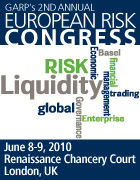On Thursday, Sir David Walker, a former chairman of Morgan Stanley International issued a report (at the behest of the UK Prime Minister) entitled “A review of corporate governance in UK banks and other financial industry entities”. This review covers a wide range of issues and offers thirty-nine recommendations in total. While many of the issues addressed in the report warrant comment, over the next few days, I will focus on three:
- The “specialness” of banks and the primary responsibility of bank boards to shareholders
- The role of the risk committee, and
- The independence of the chief risk officer (CRO).
Bank “Specialness”
The special role of banks in the economic and social order introduces unique challenges for a board. As deposit holding, loan granting institutions that retain only a small fraction of the deposits entrusted to them, modern banks are inherently highly leveraged institutions for which the management of financial risk is a fundamental - as opposed to an ancillary or derivative - aspect of their business model. Through their role in trade finance and business and personal credit creation, banks are connected and interconnected in ways that other, non-bank, institutions are not. The failure, or partial failure, of a bank can have a significantly greater impact on the society and economic system in which it exists than, say, the demise of an industrial firm. The possibility of these negative public interest externalities puts significantly greater pressure on bank boards to properly steward their operations.
Improved risk management practices certainly can be expected to afford depositors added protection. If the actions of the board are driven by a desire to benefit shareholders, however, the achieved level of protection may be less than that desired by a depositor. In many modern economies this issue is largely handled through deposit insurance - which has the effect of shifting the ultimate risk in many cases to the taxpayers and renders the depositor as somewhat indifferent to the risk management activities of a given bank. As the discussions of how to improve the risk management of banks, both individually and systematically, advance, it may be beneficial to include in these an evaluation of deposit insurance – the rationale for it, the moral hazards and behavioral effects it introduces, and its proper pricing. Perhaps an improved risk pricing mechanism associated with either public or private deposit insurance could serve a useful purpose in aligning board actions with depositor and taxpayer objectives.






0 comments:
Post a Comment